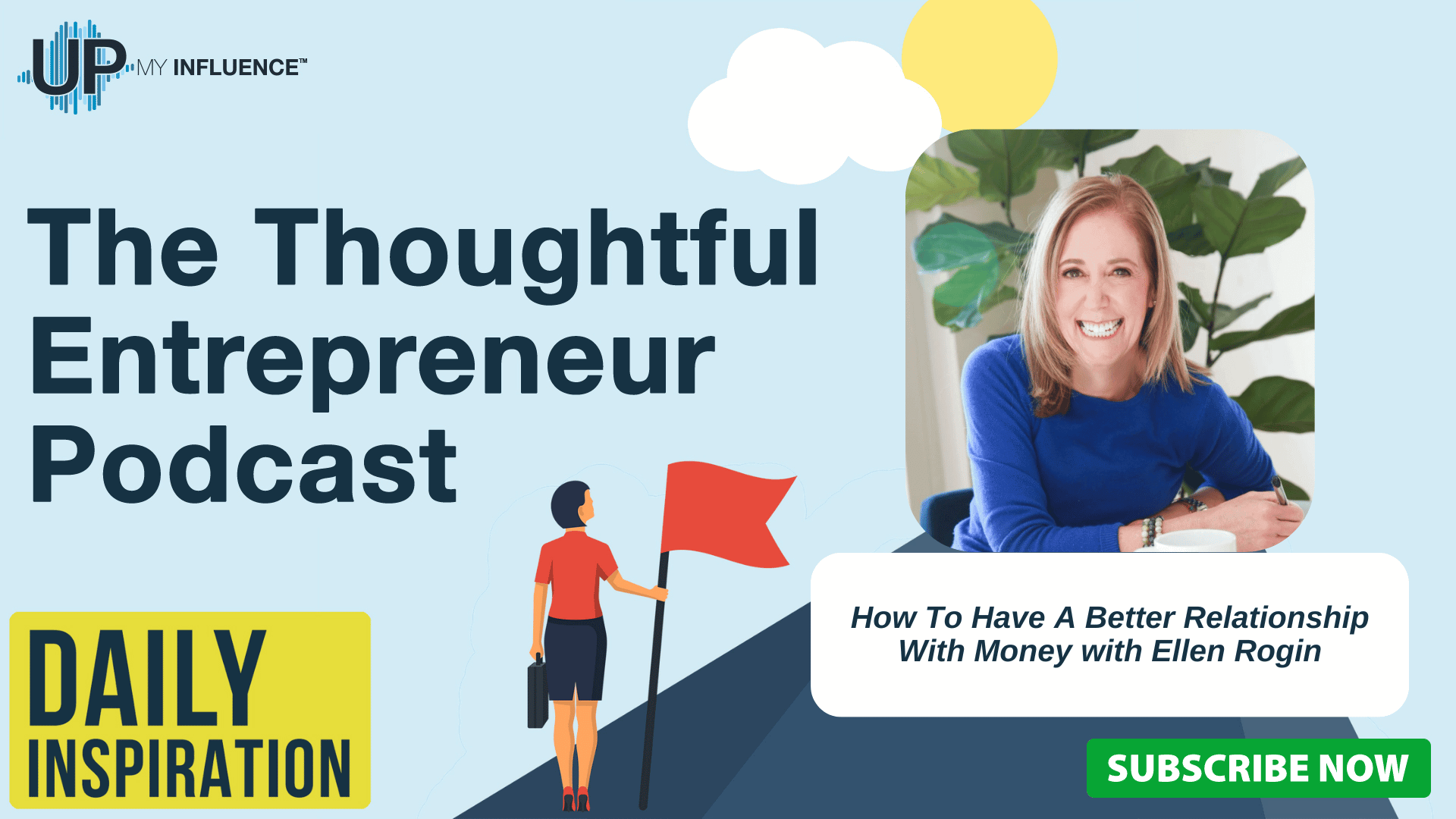THE THOUGHTFUL ENTREPRENEUR PODCAST
In this episode of the Thoughtful Entrepreneur, your host Josh Elledge speaks with the Abundance Activist, Financial Intuitive, Speaker, Prosperity Expert & NY Times Best Selling Author, Ellen Rogin.

Ellen Rogin started her career as a traditional financial advisor. However, she soon realized that her true calling was to teach people about having a healthier relationship with money, especially in business.
One of the key topics she discussed was the impact of mindset on financial outcomes. Ellen emphasized that thoughts and beliefs about money can significantly influence results. She distinguished between scarcity thinking, rooted in fear and limitation, and abundance thinking, which promotes collaboration, generosity, and optimism.
Ellen pointed out that childhood experiences often shape money beliefs. She suggested reflecting on what money was like growing up and gave examples of different money beliefs.
Key Points from the Episode:
- Abundance thinking and scarcity thinking
- Impact of childhood experiences on money beliefs
- Role of debt in business growth
- Importance of mindset in relation to money
- Collaboration, generosity, and optimism in abundance thinking
- Finding a financial advisor who understands the entrepreneurial mindset
- Recommended resources for improving one's relationship with money
- Internal work needed to change money beliefs
- Importance of mindfulness and meditation in managing money-related stress
About Ellen Rogin:
Ellen Rogin is a renowned financial expert and intuitive specializing in transforming individuals' relationships with money to foster greater happiness and abundance. Her book, “Picture Your Prosperity,” achieved New York Times bestseller status, and her financial insights have been prominently featured on significant platforms like CNBC, ABC, NPR, TIME, and Oprah Magazine.
With a background as a CPA and CFP®, Ellen has a wealth of experience as a traditional financial advisor. She later sold her prosperous wealth management firm to pursue a unique path. Combining her financial acumen with intuitive abilities, she communicates “Messages from Money” to her clients, offering them valuable insights into business growth, wealth expansion, and achieving a more peaceful relationship with money.
Beyond her consultations, Ellen is a highly sought-after speaker and consultant. She has trained countless conscious financial advisors and entrepreneurs worldwide in the “Art of Prosperity,” empowering them to enhance their businesses and wealth.
Ellen's commitment to financial well-being extends to her service on the Board of Directors for Metropolitan Capital Bank and Trust and The Ghana Scholarship Fund. She holds an MBA from NYU Stern School of Business.
Apply to be a Guest on The Thoughtful Entrepreneur:
https://go.upmyinfluence.com/podcast-guest
Links Mentioned in this Episode:
Want to learn more? Check out Ellen Rogin’s website at
Check out Ellen Rogin on LinkedIn at
https://www.linkedin.com/in/ellenrogin/
Check out Ellen Rogin on Instagram at
https://instagram.com/ellenrogin
Check out Ellen Rogin on Twitter at
https://twitter.com/ellenrogin
Check out Ellen Rogin on Facebook at
https://facebook.com/ellenrogin
Don’t forget to subscribe to The Thoughtful Entrepreneur and thank you for listening. Tune in next time!
More from UpMyInfluence:
We are actively booking guests for our The Thoughtful Entrepreneur. Schedule HERE.
Are you a 6-figure consultant? I’ve got high-level intros for you. Learn more here.
What is your #1 Lead Generation BLOCKER? Take my free quiz here.
Want to learn more about all the podcasts managed by UpMyInfluence? Opt in here.

